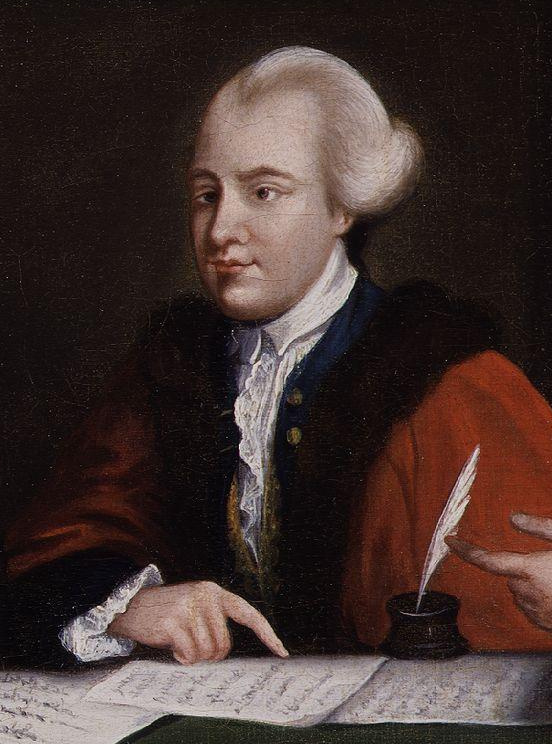|
Gorn MysonEl Estrago Bonito posted:Fun Facts: The title of Earl of Sandwich didn't come about for several decades after Francis Bacon's death. Similar thing happened with Earl Grey. Outlaws slavery, expands suffrage, and eliminates rotten boroughs, but all anyone cares about is the lovely weird tea... e: not universal male suffrage, corrected Ichabod Sexbeast has a new favorite as of 14:11 on Apr 5, 2016 |
|
|
|

|
| # ? May 14, 2024 14:55 |
|
El Estrago Bonito posted:Fun Facts: The title of Earl of Sandwich didn't come about for several decades after Francis Bacon's death. 
|
|
|
Besesoth posted:Yeah, racehorses need names like 24 Carrot Seven, Lettuce Prey, and Raspberry Perfect. Exactly what is the origin of racehorses having such bizarre names?
|
|
|
|
|
chitoryu12 posted:Exactly what is the origin of racehorses having such bizarre names? I think it's just that they need to be unique over all time and all horses.
|
|
|
|
Subjunctive posted:I think it's just that they need to be unique over all time and all horses. It works like an MMO when you have to pick a character name and all the good ones are taken so you're stuck with like HorseLord23872x
|
|
|
|
Eclipse was also what Mitsubishi named their car after.Subjunctive posted:I think it's just that they need to be unique over all time and all horses. And not just among the ones that actually race, but any others born.
|
|
|
|
And their names are supposed to reflect their progenitors, for marketing purposes.
|
|
|
|
How To Make Mice (a recipe from 1620): 1. Put a pair of dirty underwear in a jar with a handful of grain. 2. Wait 21 days. 3. Your jar should now be full of mice.
|
|
|
|
|
chitoryu12 posted:Exactly what is the origin of racehorses having such bizarre names? The most common naming convention is to use one or both of the parents names so the horses lineage can more clearly be seen. Red Rum was named after his parents Mared and Quorum for example. Seabiscuits father was named Hard Tack, which are different names for the same kind of cracker. It's also quite common for trainers to try and get risque names past the Jockey Club as a sort of "gently caress you" to the establishment. Famous horses that have run in the UK include WearTheFoxHat, Mary Hinge and Joe Blob. edit: I was also once told that a trainer sent a stablehand with a thick accent to the Jockey Club to register a new horse. This trainer had had a series of names refused for other horses as they were deemed "too political", so the stablehand went along and kept saying what the officials thought was "Hummus". This was refused as it had already been used, so it was written down phonetically as Hamas. Some idiot then bought said horse and of course all the trainers and jockeys on the circuit started referring to it with the same pronunciation as Hamas, as in the Palestinian terrorist group. Apparently this sort of 'joke' is hilarious in horse racing circles... edit2: a quick google search reveals there was a horse called Hamas but the word actually means "enthusiasm" in Arabic, so probably more to do with that. Nice story though! duckmaster has a new favorite as of 18:43 on Apr 5, 2016 |
|
|
|
Alhazred posted:How To Make Mice (a recipe from 1620): Wasn't this because, in that era, they thought life randomly sprouted from things? Like, they'd leave a pitcher of water out, flies would grow out of it (flies lay eggs, right?), and even learned scientists would be "yup, the water birthed those flies!"
|
|
|
|
You can't change them either. American Pharoah is spelled wrong because they made a typo when they registered him.
|
|
|
MisterBibs posted:Wasn't this because, in that era, they thought life randomly sprouted from things? It was actually a pretty long era. The theory of spontaneous generation was coined by Aristoteles in the fourth century BC and wasn't refuted until 1859. Of course the theory wasn't uncontroversial. In 1740 John Needham boiled some gravy and poured it into a bottle and sealed it. A couple of days later the bottle was full of bacteria. Lazzaro Spallanzani wasn't terrible impressed and replicated the experiment with one crucial difference, he cleansed the cork before sealing the bottle and did not experience bacteria spontaneously generating.
|
|
|
|
|
Alhazred posted:It was actually a pretty long era. The theory of spontaneous generation was coined by Aristoteles in the fourth century BC and wasn't refuted until 1859. Of course the theory wasn't uncontroversial. In 1740 John Needham boiled some gravy and poured it into a bottle and sealed it. A couple of days later the bottle was full of bacteria. Lazzaro Spallanzani wasn't terrible impressed and replicated the experiment with one crucial difference, he cleansed the cork before sealing the bottle and did not experience bacteria spontaneously generating. Pasteur did a similar experiment, boiling up a nutrient solution then drawing the neck out so that it was open to the air but bacteria couldn't get to it. They remained bacteria-free for decades. 
|
|
|
|
I still think itís surprising that educated people knew the world was round a thousand years before Columbus set sail, but germ theory didnít take hold till the nineteenth century.
|
|
|
|
Platystemon posted:I still think itís surprising that educated people knew the world was round a thousand years before Columbus set sail, but germ theory didnít take hold till the nineteenth century. Germ theory only seems obvious in retrospect. With the billions of different microorganisms around, associating one particular germ with a specific disease is not even slightly easy - particularly given the state of technology in the 19th century.
|
|
|
|
The world being round makes some sense. If you live by the sea, like the Greeks, ships would seem to disappear when they cross the horizon, but later come back. Ancient people weren't stupid, they interpreted the data they had with the leading theories of the day. The sphere is a perfect shape, so why wouldn't the Gods have made the world into such a shape? Eratosthenes even calculated the approximate circumference of the Earth, and got fairly close to boot. Source If you ask me, the dumbest thing Aristotle gave us (and that managed to survive for quite some time) was the idea that flies and other insects only had four legs.
|
|
|
|
Tasteful Dickpic posted:The world being round makes some sense. If you live by the sea, like the Greeks, ships would seem to disappear when they cross the horizon, but later come back. Ancient people weren't stupid, they interpreted the data they had with the leading theories of the day. The sphere is a perfect shape, so why wouldn't the Gods have made the world into such a shape? Yeah, without a microscope, why would you even assume micro-organisms exist.
|
|
|
|
I still think Democritus et al. get too much credit for hypothesising the existence of atoms. There was no particular evidence for it, they just thought it was an elegant idea. It was a coincidence that the world actually works that way. If theyíd observed something like Franklinís oil film experiment and thatís what made them believe matter was composed of discrete units, that would be different.
|
|
|
|
The Greeks were generally far better at developing theories as to how the world works than testing them. One thing that didn't quite work out is their idea that testicles act as a counterweight to the vocal cords.
|
|
|
|
Aphrodite posted:You can't change them either. American Pharoah is spelled wrong because they made a typo when they registered him. The sire of American Pharoah is named Pioneerof The Nile, unusually spaced to get around the 18 character limit. It was named by the same guy too, dude sucks at naming horses. El Estrago Bonito posted:Fun Facts: The title of Earl of Sandwich didn't come about for several decades after Francis Bacon's death. My favourite thing about the 4th Earl of Sandwich is the way his story connects with John Wilkes.  John Wilkes was considered to be the ugliest man in England, but had enough intelligence and charm to make up for it. He said that on good days it took him only half an hour to talk away his face. He was a controversial politician of some repute, a prominent member of the radical movement. John Wilkes and the Earl of Sandwich were both members Francis Dashwood's Hellfire club, some sort of secret society where dudes got up to a bunch of activities that aren't really well known. Popular theories include satanic rituals or sex stuff with prostitutes. Hellfire club members were also notorious pranksters. John Wilkes brought a monkey dressed up like the devil after everybody had gotten good and shitfaced and apparently Sandwich freaked out to an embarrassing extent. The two became political enemies for what I'm sure are very good reasons and not just the monkey business, but mostly it was the monkey business. Wilkes allegedly got off an  on Sandwich when the latter said "Sir, I do not know if you will die of the gallows or the pox" to which Wilkes responded "That depends, my lord, on weather I embrace your principles or your mistresses." There's some dispute about where that quote actually comes from, but Wilkes is a highly plausible candidate. Another famous Wilkes exchange came after a constituent said he'd rather vote for Satan than for Wilkes, to which Wilkes responded "And if your friend decides against standing, can I count on your vote?" on Sandwich when the latter said "Sir, I do not know if you will die of the gallows or the pox" to which Wilkes responded "That depends, my lord, on weather I embrace your principles or your mistresses." There's some dispute about where that quote actually comes from, but Wilkes is a highly plausible candidate. Another famous Wilkes exchange came after a constituent said he'd rather vote for Satan than for Wilkes, to which Wilkes responded "And if your friend decides against standing, can I count on your vote?"When the Earl of Bute was elected Prime Minister, Wilkes was so opposed to him that he started a satirical newspaper targeting Bute. He gained enough traction with this that he actually succeeded in forcing Bute to resign, but not before jumping a few hurdles like avoiding arrest and surviving two duels. A lot of politicians hated Wilkes but he was popular enough with the people that taking direct action against him was difficult. The bad break for Wilkes came after he and another Hellfire member wrote An Essay On Woman a scandalous parody of Alexander Pope's An Essay On Man. There was a lot going on here, it was never fully finished and only fragments survive today, but needless to say that at the time, An Essay On Woman was an outrageous publication, it was lewd, bawdy and criticized a number of political opponents in very personal ways. One of the central figures in the poem was the Earl of Sandwich's mistress. I'm not sure how the poem actually made its way into Sandwich's hands. I know there was a bit of a raid on the Hellfire club during one of the times the authorities were trying to arrest John Wilkes, but it's theorized that was actually set up by Sandwich in the first place. There are tantalizingly few details available on free sources for this, but apparently a page of the document was used to wrap up somebody's lunch and that's how it fell into the wrong hands. Without knowing anything else about it, I'll assume said lunch was a sandwich, just for some narrative fun. Sandwich organized a great moral outrage about An Essay On Woman, but it should be noted that Sandwich was anything but a moral beacon before this. He was publicly regarded as a rake (that whole mistresses or principles thing wasn't a generic insult) and absolutely lived the bad life. Between all the secret society orgies and the mistresses he also spent a lot of time drinking and gambling. The pro-Sandwich account of the invention of the eponymous Sandwich is that he was working so hard at his desk that he ate the sandwich to spend more time working but the popular account is that he would more often been seen with the sandwich while at the gambling table. Point being, Sandwich was very clearly personally invested in bringing down Wilkes. Wilkes had a lot of enemies at this point, and thus a campaign to finally get him began. To prevent Wilkes from slipping through loopholes like he did last time, they expelled him from the house of commons. Before they managed to get him though, he escaped to France. (There's a certain irony here because while publishing The North Briton he very opposed to peace with France and said peace only came about through the actions of Bute.) He stayed in France for 4 years. When he returned, the popular opinion was still on the side of Wilkes. The whole moral outrage was accurately seen as a rather transparent effort by state to remove a political rival. When he came back he was immediately elected a member of parliment in Middlesex to reclaim parliamentary immunity, which he agreed to waive in exchange for a short prison sentence. He was sentenced to prison for 2 years. This was a controversial action, and became even less popular when the state shot and killed a number of people protesting the imprisonment. John Wilkes was then expelled from parliament and a reelection was held, which he won. The state tried that two more times and Wilkes won the election for the third and fourth time. Not loving around anymore, the state just directly handed the seat to his opponent. In return Wilkes got himself involved in Municipal politics in London and somehow managed to worm his way back into parliament after his release from prison, marking the 5th time he won that election in 2 years. Having now become some type of martyr against government tyranny, John Wilkes became very popular in America, which was on the cusp of rebellion. A bunch of places in America are actually named after him. In return, Wilkes advocated for America in Parliament. It's said that the Wilkes's struggles with the British government pushed prominent American thinkers away from reforming the system and toward independence. As a final circle to the story of John Wilkes is his downfall and loss of popularity. As he grew old, he became a more establishment figure with less clout among political radicals. During the Gordon Riots, he ordered troops to fire on protesters and his popularity dried up completely now that he was on the other side of the gun. The Earl of Sandwich, for his part, would go on to badly mishandle the British navy during the ensuing war, allowing defeats at the hands of the Americans, the French and the Spanish.  Bonus Fact: A relative of his, John Wilkes Booth would later also make history standing up to his federal government. Bonus Fact: A relative of his, John Wilkes Booth would later also make history standing up to his federal government.
|
|
|
|
Carbon dioxide posted:Yeah, without a microscope, why would you even assume micro-organisms exist. And even if you could see them, why would you not think, "Must be good water; stuff can live in it.  " "
|
|
|
|
BravestOfTheLamps posted:I have to make a correction. I said that the House of Medici included the most popes for a family (four). I was wrong. This is from a few pages back but there's something else interesting in here. Benedict IX was pope on three separate occasions. Basically, his family secured the papacy for him when he was around 20 or so , making him also one of the youngest popes ever. He was forced out of Rome on two different occasions, the second time being in 1045 when he sold the papacy to his godfather who became Gregory VI. The sale of the office also completely wiped out the papal treasury and the pope was unable to pay any bills for a time. Benedict then decided to go live a leisurely life in the country but then returned to Rome to try and once again reclaim the papacy. He failed that time though and was driven away on two more occasions. After that, he was charged with simony, failed to show up in court, got excommunicated and disappeared from the historical record. He was also described in very uncharitable terms. He was said to be "feasting on immorality and a demon from hell in the disguise of a priest.' He was also accused of "rapes, murders and other unspeakable acts" along with indictments for homosexuality and bestiality for good measure by Pope Victor III who also said his life was "so vile, so foul, so execrable that I shudder to think of it." Also within that family tree, you see Pope Sergius III and his mistress Marozia had a son who later became pope as well making Sergius III the only pope known to have fathered another pope.
|
|
|
|
Boardroom Jimmy posted:The sale of the office also completely wiped out the papal treasury and the pope was unable to pay any bills for a time. The sale of the papacy cost the papacy all of its money? Did the new pope drain the coffers as soon as he could or what?
|
|
|
|
In 1902 Missouri, 18 year old Harry Truman needed a job. His father mentioned that a payroll clerk job had recently opened up for a railroad construction company, as Truman's classmate who had the job recently drowned in a river. One day after taking the job, Truman and the daughter of his boss were sitting by the river as watched in horror as his classmate's body surfaced. She fainted, he "didn't know what to do."
|
|
|
|
Mojo Threepwood posted:In 1902 Missouri, 18 year old Harry Truman needed a job. His father mentioned that a payroll clerk job had recently opened up for a railroad construction company, as Truman's classmate who had the job recently drowned in a river. Would you say he "bombed" that situation?
|
|
|
|
Chamale posted:The sale of the papacy cost the papacy all of its money? Did the new pope drain the coffers as soon as he could or what? From doing a little extra research, Benedict basically told his godfather that he would give him the papal throne if he was then reimbursed for the expenses he racked up to get elected pope. Gregory VI then gave him around 680 kilograms of gold. He did this because he saw Benedict as unworthy of the papacy and was willing to do whatever it took to get him off the throne. Benedict took the money to go get married but his would be wife (a second cousin to keep with incest among the elite families theme) turned down his marriage proposal. It was only then that Benedict decided that maybe giving up the papacy wasn't the best idea and he wanted it back.
|
|
|
|
In the battle of Aqaba in 1917 Lawrence of Arabia accidentally shot his own camel in the head while riding into battle.
|
|
|
|
|
Alhazred posted:In the battle of Aqaba in 1917 Lawrence of Arabia accidentally shot his own camel in the head while riding into battle. T. E. Lawrence became a motorcycle maniac after the war. He had a series of custom made high-end motorcycles, all of which he named George. In 1935 he was riding George V at over 100 mph on a dirt back road when he crested a hill and saw two boys on bikes. He swerved to avoid them, lost control, and was thrown over the handlebars. He died six days later of massive head injuries. Of course he wasn't wearing a helmet. His attending physician was so convinced a helmet would have saved him he designed the first motorcycle helmet and campaigned for their mandatory use.
|
|
|
Deteriorata posted:In 1935 he was riding George V I'm a horrible man for smirking at this phrase, especially after the outcome of it all. But well, It is comedy gold!
|
|
|
|
|
MMM Whatchya Say posted:The sire of American Pharoah is named Pioneerof The Nile, unusually spaced to get around the 18 character limit. It was named by the same guy too, dude sucks at naming horses. This was a very good read!
|
|
|
|
Alhazred posted:In the battle of Aqaba in 1917 Lawrence of Arabia accidentally shot his own camel in the head while riding into battle. I don't remember that part of the movie
|
|
|
|
SeanBeansShako posted:I'm a horrible man for smirking at this phrase, especially after the outcome of it all. But well, It is comedy gold! This even more appropiate in that T.E. Lawrence had a hosed up private life. It's strongly possible this man was... quote:On another occasion, he refers to "friends quivering together in the yielding sand with intimate hot limbs in supreme embrace" In his own autobiography, quote:In both Seven Pillars and a 1919 letter to a military colleague,[70] Lawrence describes an episode on 20 November 1917 while reconnoitring Dera'a in disguise when he was captured by the Ottoman military, heavily beaten, and sexually abused by the local Bey and his guardsmen. After which he strongly embraced his probable love of masochism. He really enjoyed getting physically beaten, and in his later life he supposedly paid a man to administer severe tests of stamina and formality that would inevitably end with a beating if he didn't hold himself up to his own high standards.
|
|
|
|
Alhazred posted:In the battle of Aqaba in 1917 Lawrence of Arabia accidentally shot his own camel in the head while riding into battle. The Soviet cavalry manual contained many useful tips on how not to do this.
|
|
|
|
Do share.
|
|
|
|
Siivola posted:Do share. You can read the shooting related part of the manual here (in English) http://sovietguns.blogspot.ca/2014/03/shooting-from-horseback.html
|
|
|
|
One of the more significant figures in the Arab Revolt was Auda ibu Tayi. When he joined Lawrence he smashed his false teeth that was made in Turkey while saying 'I had forgotten, Jemal Pasha gave me these. I was eating my Lordís bread with Turkish teeth!í
|
|
|
|
|
Alhazred posted:One of the more significant figures in the Arab Revolt was Auda ibu Tayi. When he joined Lawrence he smashed his false teeth that was made in Turkey while saying 'I had forgotten, Jemal Pasha gave me these. I was eating my Lord’s bread with Turkish teeth!’ Wasn't he the one with the crazy epic speech in the film about beige a "river to his people"?
|
|
|
|
Gabriel Pope posted:By the 17th century or so, the English were well on their way towards assimilating the native Celtic cultures of the British Isles. Between physical dominion of the Isles (somewhat unofficial in Scotland's case) and increasing economic hegemony from the nascent industrialization of England, enough English goods and culture were being exported that local traditions were being overwhelmed. Anglicization offered increased material wealth and generally met little resistance, so by the time Scotland and England formally united the Scots were well on their way to becoming English people with funny accents. The only holdouts were a few backwater highland clans that even other Scots looked down on for their backwardness. There's a lot wrong with this post that kind of irritates me, You sort of mashing nearly 200 years together with no context. First off there's the fact that Scotland never really took to being "Anglicized", English influence may have crept into the higher stations during the start of the 17th century due to James the 1st but the average Scot would have been far from Anglicized and honestly things would have have much the same in view of nationality as they had been for the last few hundred years. Then pretty importantly in the middle of the 17th century there's the war of the three kingdoms. Basically Charles the 1st comes in and is fairly clueless when it comes to Scotland, this triggers a civil war in Scotland which the Convenanters won with support of Parliament. Which in turn triggered a uprising in Ireland, which then triggered the English civil war. But the Scottish loving to be contrary threw in with Charles the 2nd instead of Cromwell which resulted in Cromwell invading Scotland. It's then after 1660 during the restoration that you can make the argument that due to strong trade links with England and the colonies places like Glasgow start to become anglicised when compared to the rest of the country. (ironically Glasgow was one the biggest supporters of the independence campaign last year.) Fast forward to the end half of the 17th century and you have arguably the period that basically ends Scotland as a "independent" state, you have the William & Mary of Orange take over the throne which increases the religious tensions to pretty much explode between Catholic/Protestant lines (which still exist to a point today and were definitely a thing when I was younger.) due to this the Jacobites appear on the scene. You then have a massive famine break out which lead to a massive amount of the population leaving mainly for mainly Ireland/America.(fun fact my mothers family pretty much left for Ireland at this time before returning on mass in the 1900's) You then have what I believe to be the main reason for the Scotland fully joining with England as one Nation. The Darien Scheme or how Scotland really ballsed up colonisation https://en.wikipedia.org/wiki/Darien_scheme It's the end of the 17th century and Scotland seeing what a money spinner it is wants to get in on the act of colonisation and a guy called William Paterson one of the founders of the bank of England had a plan he'd wanted to try since he was teen in the Bahamas. His idea was to set up a trading base in the Isthmus of Panama something along the lines of the Panama canal except overland. Now it seems a solid plan by a very capable guy so they charge in full steam ahead to find the way blocked mainly by the East India company which stops any funding from Dutch or English sources and legally blocks all routes apart from the funds coming from Scotland itself. the idea catches on and the patriotic Scots think "gently caress yea we should have our own colonies" and people come forward to fund it from every corner in fact it's so popular that a fifth of Scotland's economy ended up tied up in the scheme. So far so good when five ships and 12,000 people headed out and it almost goes to poo poo from the start, the journey was horrific as most atlantic journeys were those days, at least 40 died and half the crew disliked the other half who were made up of criminals and war criminals but they got there and as they buried their dead they realised they weren't in the paradise they were expecting. You see Paterson had never actually been to Panama but he had hired a guide who knew it well however this guide was Lionel Wafer https://en.wikipedia.org/wiki/Lionel_Wafer a former privateer and he knew of Panama from when he had been marooned there. He convinced them that the area was fair weathered and a paradise full of friendly(sexy) locals but when they got there it turned out to a hot damp swamp, the locals wanted nothing to do with them and the Spanish in the area were openly hostile. By summer 10 a day were dying mainly to malaria, the local natives felt bad and turned up with supplies but the ship crew who'd never left the ships pretty much commandeered them, the supplies they had were improperly stored causing most of it to spoil and nearby England & Dutch colonies refused to send supplies in case it upset the Spanish. After 8 months the colony was abandoned with only 300 of the 12,000 surviving (six of them choosing to stay.) and the 50 headed home only to blamed and even disowned by there families. the other 250 headed to New York only to find as they arrived that two supply ships had just left to resupply the (empty)colony. These two ship turned up with 300 new settlers and supplies just to find a empty colony, as they sat on the bay wondering what to do one of the ships set alight killing all on board after this the other headed to Jamaica. However the word didn't reach Scotland of the colony's failure and due to the early letters being sent home being let's say hopeful and leaving our cretian details Scotland were under the impression everything was going well and had then sent the second wave of ships with 1000 settlers who arrived to find a burnt out ship on the shore and a overgrown swampy abandoned site.(I can only imagine their disappointment.) by this point the Spanish in the area had had enough and the settles found themselves in a race against time to get the place ready for defense all the while infighting among themselves as to who was to blame. They put up a good fight against the Spanish but in the end negotiated a peace and left for home. This total shitshow had spunked over 20% of Scotland's cash and when the the English came knocking with the money to recover the economy in return for Scotland joining officially with England in the act of the union there was very little debate. I've wrote enough at the moment but maybe next up is the Jacobites, war-criminal Duke of Cumberland and the Act of Proscription..... Krypt-OOO-Nite!! has a new favorite as of 18:03 on Apr 11, 2016 |
|
|
|
Platystemon posted:I still think it’s surprising that educated people knew the world was round a thousand years before Columbus set sail, but germ theory didn’t take hold till the nineteenth century. Fun fact: Henry VIII was absolutely paranoid about disease and getting sick, and a lot of his practices regarding foul humours in the air are actually a lot of things that is done in the modern world to help prevent disease from spreading. He was considered a tad irrational about these habits since there was no way at the time to prove what was going on, but he may have been onto something because he was especially adamant about being clean and would try to pass ordinances for the sake of better hygiene but without the luck of widespread participation from others. Whenever plague struck, Henry would isolate himself because he believed that something bad was in the air. The practices regarding the king's son and only male heir were especially rigid for the times. The separate home of his son Edward were washed at least a few times a day and anyone who was around the boy needed to be clean and sweet smelling. Edward was also rarely at court for Henry's fear of the boy dying from illness. It's kind of weird to think about since Henry VIII was an extremely intelligent man, and who knows what sort of scientific advances he would have made had he not been a monarch. On the flipside, the root of this paranoia is thought to exist because of his family members who had died of illnesses, especially his elder brother Arthur, and likewise the diligent efforts to keep his son clean were because Edward was the only male heir. Still, his attitude about how illnesses spread was spot on and well before it's time. The only other person around this time I can think of with the idea the illness is spread through the air was by an Italian physician, Girolamo Fracastoro, who in 1546 suggested that disease was spread in the air via spores. Also related, despite a lot of the myths that tend to perpetuate about not bathing, Henry VIII was also known for bathing frequently with heated water and his courts would move depending on the nature of the water supply. Although baths might not have been an every day thing, he did keep himself clean and expected the same of his court. Undergarments, especially linen chemises, were a great source of pride among nobles and keeping them clean and having a fresh garment everyday helped keep the body and clothing clean. Hands were always washed before the start of a meal, etc. Even if others did not comply, he did make a since effort in making reformations when it came to cleanliness.
|
|
|
|

|
| # ? May 14, 2024 14:55 |
|
Henry VIII was pretty much the best monarch ever..... and then he hit 40 and KABOOM his brain exploded.
|
|
|













 Yes, it's like a lava lamp.
Yes, it's like a lava lamp.






























